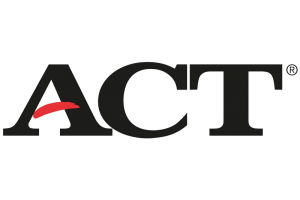Counterpoint – How the ACT Policy Change Could Affect College Scholarships
Headshot of author – Senior Head Graphic Design Editor Tessa Killen
October 9, 2019
The clock is ticking away in the silent room. Pencils frantically scratching away at a testing sheet all around you. Students let out stressful sighs and yawns as the grueling 3 hours of the ACT exam has begun. However, the ACT administration threw a major curve ball that could change the future of test-taking
On Tuesday, October 8th, the ACT administration announced that students will have the chance to retake individual sections of the ACT exam in September of 2020. At first glance, this seems like a blessing as it relieves a lot of test-taking anxiety. However, when you dive deeper you can quickly realize that it may be a blessing and a curse.
On one side of the spectrum, students can go back and retake any of the four sections of the ACT to raise that section’s score without the other three sections’ scores lowered. According to ACT officials, this change has been made to help relieve test anxiety, but does it relieve the anxiety of the college application process?
According to Prep Scholar, some universities and colleges can be picky about how students submit their ACT scores. Prep Scholar stated that “some colleges require you to send your entire ACT testing record if you took the ACT more than once—even if that means sending some not-so-great scores. Other colleges are fine with you just sending scores from one ACT test date.”
This means that your top college may have access to some lower test scores. This doesn’t technically mean that scholarship opportunities will be lowered, but, frankly, it should. It is known that many colleges, community colleges to university, are expensive and give out scholarships. But to pay for such scholarships, colleges need to have money. There isn’t enough money to go around, though.
As test scores increase and merit scholarships become more competitive, colleges will have to make a choice. They will either have to decline some applications for academic scholarships or lower the number of their scholarships to award more students.
For example, Western Kentucky University’s (WKU) tuition is $9,912 for in-state students, not including boarding and other fees. If a student has an unweighted GPA of 3.8+ and an ACT score of 28+, the student will win an $8,000 scholarship. Currently, WKU has 20,171 students enrolled. If 5,000 students were eligible for that academic scholarship, it would cost WKU $40,000,000. That’s 20% of the income they should be earning from tuition. Now, let’s say this policy change allows an increase of scores, and now 8,000 students were eligible for the scholarship. That’s a 1.6% rate of increase, and WKU would end up losing $64,000,000 or 32% of their tuition income. However, that’s only an inferred example. The policy change could have a higher increase rate or lower.
With this policy change, it could cost colleges a lot of money– money they use to give scholarships and renovate campuses. Scholarships will become more competitive or lower in value, causing more stress on the application process for students.
Yes, the new policy relieves test anxiety for some. Is it worth it, though?





